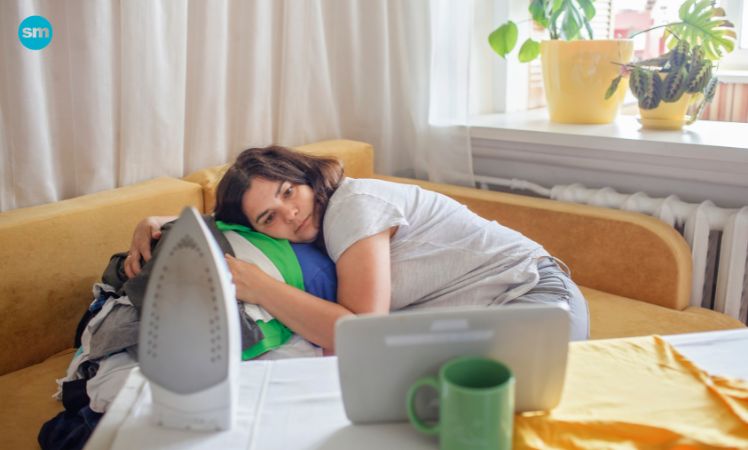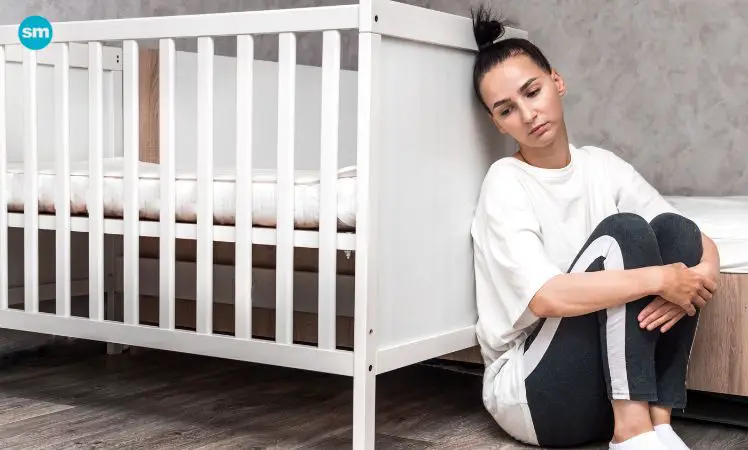Last Updated on January 22, 2024 by Lori Pace
Depression refers to a mental condition that can affect the way someone navigates the world. It is caused by heavy feelings like guilt or hopelessness. According to the World Health Organization, depression is very common. It affects around 281 million people in the world. This condition can take many forms and severity and can affect any age group. There are certain risk factors that can make single mothers more vulnerable to depression. As a single mom, we suggest you take into account these depressed symptoms and these possible impacts.
Depressed Single Moms Symptoms
Depression is a condition that affects single mothers. However, it is not an exclusive diagnosis. This term refers to single parents at high risk for developing depression.
Single mom depression is not to be confused with “single mother syndrome”, a term that refers to the belief that children who are raised without a father figure are less likely to succeed, and that mothers tend to be overbearing.
Possible Symptoms
- low energy
- trouble concentrating
- persistent feelings of loneliness or hopelessness
- loss of interest in socializing
- feelings of guilt
- impacted eating habits
- thoughts of death or suicide
Risk Factors For Navigating Depressed Single Mom
Single moms can experience depression symptoms. Individual circumstances can make symptoms more severe or more frequent. Here are some situation that might put more risks to depressed single moms.
Complicated Co-parenting Situations
For children and their parents, it can be difficult to have conflict with a spouse or ex-partner.
Many moms play a role in co-parenting. They help to foster a healthy relationship between the children and their other parent. This can mean that it may be difficult for a mother to navigate a complicated and sometimes tense relationship.
It can be difficult to communicate with your ex, especially after a hard breakup. This can lead to uncomfortable feelings and even worsen depression.
Boundaries can help to ease any difficult or strained coparenting arrangements. Setting boundaries might look like:
- Making a written parenting plan
- Mediators can be used to help parents resolve disagreements
- Keep communication professional-like and centered on your children
- Arrange drop-offs or pickups at a relative’s house, public place or your local police station in cases of abuse and past violence
- Following the counsel and direction of court orders and arrangements, particularly in cases of past abuse or trauma
Lack Of Support For Depressed Single Mom
Although some say that it takes a village to raise a child in the real world, many parents don’t have that village. Two parents are often better for a household. It can be overwhelming to have one parent carrying the entire load. Sometimes, there is no other option.
If you have trusted adults who are willing to lend support to you and your children, you might consider it. It is up to you to decide what conditions you will use, but it doesn’t mean you have to do it alone. Even if your loved ones aren’t able to provide direct support, emotional support can still be vital.
Insufficient Sleep
A 2021 study shows that economic problems like housing insecurity can affect sleep. However, parents are likely to agree that having children can reduce your beauty.
Single parents may find it difficult to get enough sleep when they have to run all of the household chores. Sleep has been shown to have a positive impact on depression and vice versa. This can play a significant role in mental health.
You may not be able to follow every recommendation for better sleep hygiene if you are a single parent. To ensure you have the best rest possible, think about which areas you can work on.
Previous Trauma
The ways in which neglect and abuse can affect a person’s mental well-being. Trauma can take many forms, including surviving a natural catastrophe or being subject to physical abuse.
Experiences in traumatic situations may increase your chances of posttraumatic stress disorder (PTSD), and anxiety.
Stigma Or Judgment From Others
It can be difficult to manage a household alone, not to mention the stigma that a depressed single mom often experiences.
Moms who raise their children on their own might have to deal with negative feelings or assumptions from friends or parents because of the importance of a nuclear family.
Coping With Depression As A Single Mom
Single parents don’t all have depression. Those who have it love their children just as much as anyone else. Every person’s life experiences and circumstances are different. Parents may not always have the resources they need to manage their household and be able to parent with ease.
If you believe that your depression is related to or exacerbated due to single parenthood, you don’t have to be alone. It is possible to learn how to cope and live a happy, balanced life.
Self-Care For A Depressed Single Mom
Self-care doesn’t have to be about spending money or going on a vacation. You can focus on self-care in the following ways:
- setting boundaries
- Take care of your body
- You can fit quiet time into your daily schedule
Building Support
Single moms and their children can benefit from asking for and receiving help. Consider asking your loved ones for their help if they are trustworthy and safe adults. You, the parent, can decide how this will look for your family. Even if you don’t have the resources to help your children, it is worth considering contacting your family and friends for support.
Single parents can benefit from making new friends. For single parents, you might want to check out apps such as Peanut and Bumble BFF to make new friends. Meetup is a great way to meet people with similar interests.
Talking to a counselor or therapist is a great way to prioritize your mental health. You can get help with difficult emotions and learn tools to manage stress and depression from a mental health professional.
Support Groups
Accessing support groups is a great way for you to get support and to feel less alone. Consider groups that are specifically for single mothers, such as Empowering Solo Mothers Everywhere (ESME) or support groups for depression.
Suicide Prevention
Remember that you are not alone, and that resources are readily available for you. Talk to someone immediately if you feel the need.
- The National Suicide Prevention Lifeline is available 24 hours a days at 800-273-8255.
- Text “HOME” at the Crisis Text Line 741741.



